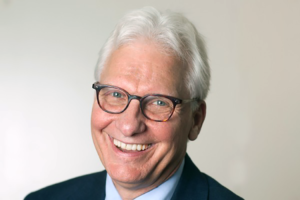Ep. 26 – Self-Determination Theory & MI

We were thrilled to welcome Richard M. Ryan, Ph.D. onto the podcast for this exploration of Self-Determination Theory and its natural links with MI. Richard is a Professor at the Institute for Positive Psychology & Education at the Australian Catholic University and Research Professor in Psychology at the University of Rochester in New York. Richard is a clinical psychologist and co-developer of Self-Determination Theory, one of the leading theories of human motivation. Richard has published over 300 papers and books in the areas of human motivation, personality, and psychological well-being. Richard has been recognised as one of the eminent psychologists of the modern era, Post-World War II.
Richard has lectured in more than 80 universities worldwide, and consulted with numerous organisations, schools, clinics, and health-care initiatives. Recipient of distinguished career awards from multiple societies for his contributions to the field on motivation, personal meaning, and self and identity, he is also a Fellow of the American Psychological Association, the American Educational Research Association, and an Honorary Member of the German Psychological Society (DGP). He has held numerous editorial posts, including having been Editor-in-Chief of Motivation & Emotion. He has also been a James McKeen Cattell and Leverhulme Fellow, and a visiting scientist at the National Institute of Education in Singapore, the University of Bath, UK, and the Max Planck Institute, Berlin.
0:00 – Opening/introduction
2:15 – Richard’s introduction and origins of Self-Determination Theory (SDT)
6:20 – Intrinsic motivation and the importance of autonomy
8:30 – MI and SDT
12:30 – Change talk through the lens of SDT
18:30 – Shifting from internal pressure to autonomously oriented change
20:15 – The SDT continuum of motivation
23:30 – The context of mandated treatment
28:00 – Exploring sustain talk: “Embracing where they are”
33:00 – Three fundamental human needs: Autonomy, Relatedness, and Competence
40:30 – The risk of therapist ego involvement
42:10 – The ultimate therapeutic outcome: “The client’s autonomous choices”
44:45 – The paradox of outcome-driven practices across settings
50:00 – Internal or External? Not good or bad
53:20 – SDT in context of COVID19: Effective messaging and wilful compliance
55:45 – Independence/Freedom vs. Autonomy
1:00:00 – SDT and parenting
1:05:00 – Richard’s new role at the Institute of Positive Psychology
1:10:58 – End of recording
Links and contact information:
For suggestions, questions and to contact Glenn & Sebastian
[wpedon id=”6940″ align=”center”]
The post Ep 26 – Self-Determination Theory & MI appeared first on Glenn Hinds Motivation & Coaching Consultants.




